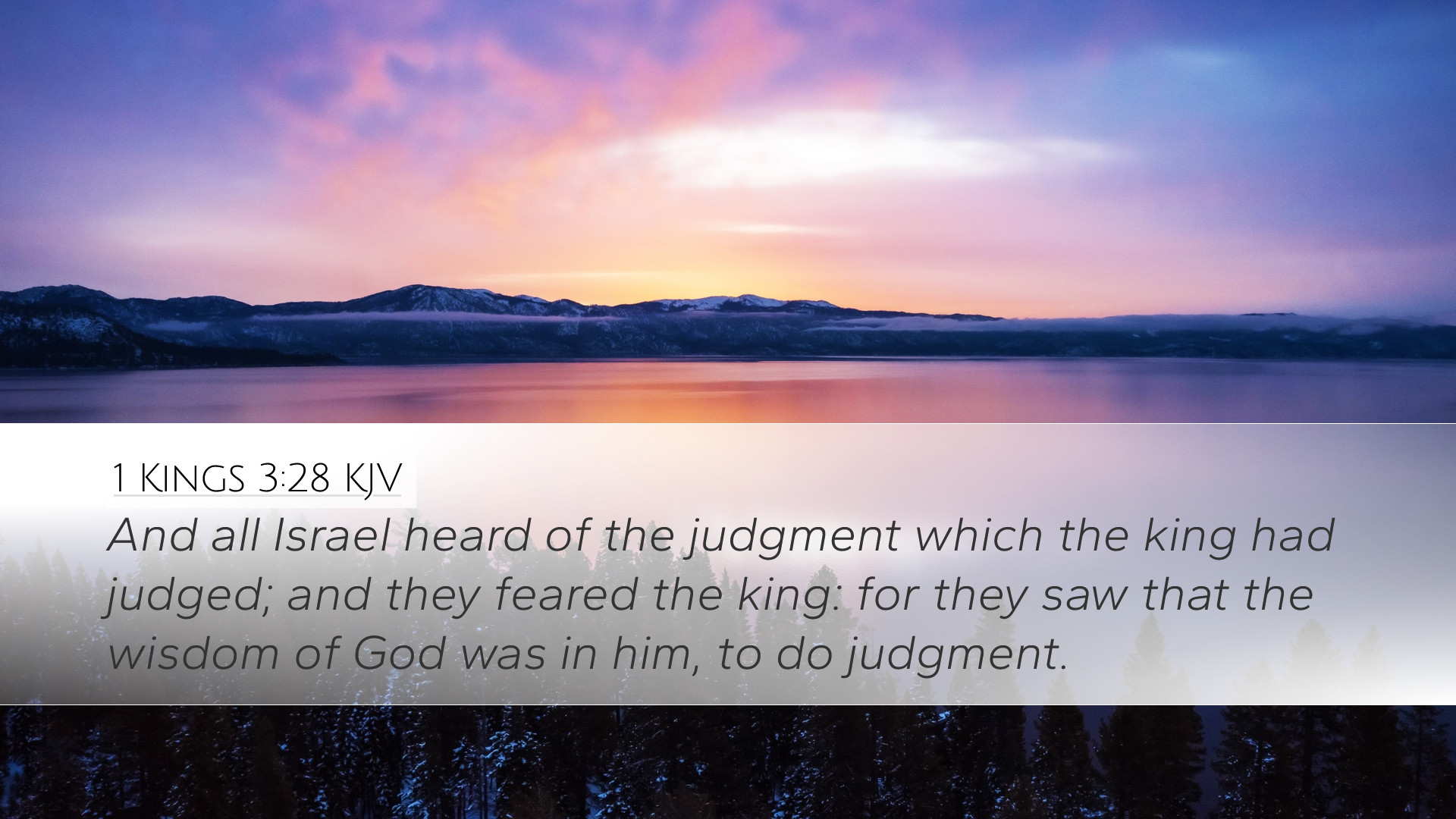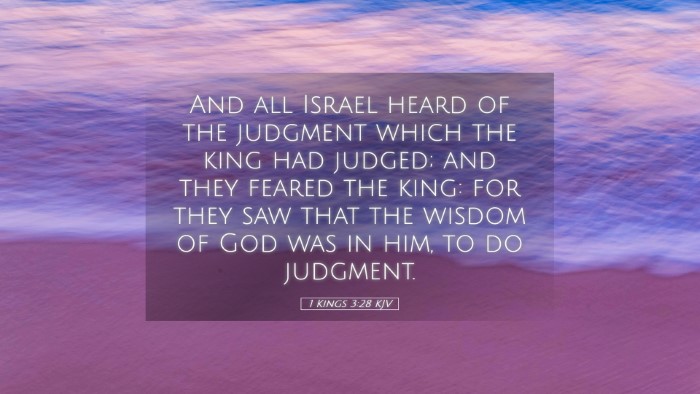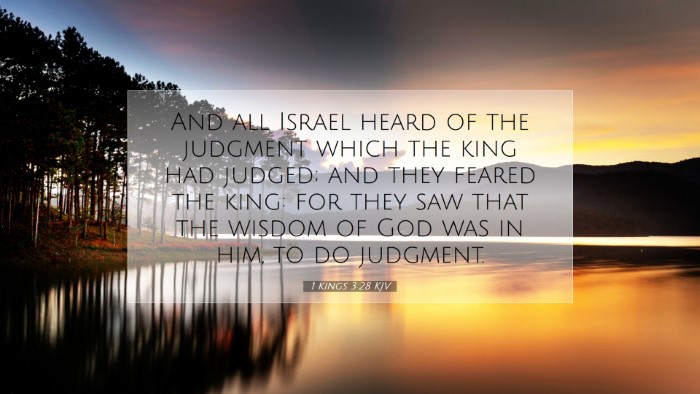Commentary on 1 Kings 3:28
1 Kings 3:28 states: "And all Israel heard of the judgment which the king had judged; and they feared the king: for they saw that the wisdom of God was in him, to do judgment." This verse concludes the narrative that demonstrates Solomon's divinely granted wisdom as a ruler.
Introduction
This passage is crucial for understanding not just Solomon's reign, but also the nature of divine wisdom in governance and judgment. The story leading to this verse shows Solomon’s ability to discern the truth in a complex and emotionally charged situation, reflecting God’s wisdom.
Overview of the Passage
The context of this verse follows the famous judgment of Solomon concerning two women claiming to be the mother of the same child. Solomon’s ruling not only resolved the dispute but also revealed the deep understanding of human nature he had been blessed with.
Insights from Public Domain Commentaries
Matthew Henry's Commentary
Matthew Henry emphasizes the divine wisdom displayed by Solomon, stating that it was a manifestation of God's presence in his rulings. Henry points out that Solomon did not simply rely on human reasoning but sought wisdom from God, which made his judgment not only wise but rightful. This provided an exemplary model for leaders, demonstrating that true judgment comes from relying on divine guidance.
Albert Barnes' Notes
Albert Barnes highlights that the fear of the king mentioned in this verse is a healthy fear that respects authority derived from wisdom. He notes that the response of the people indicates that they recognized Solomon’s unique capability to judge justly and effectively. Barnes draws attention to the societal implications of wise leadership, indicating that when a leader exhibits the wisdom of God, it instills respect and reverence among the people.
Adam Clarke's Commentary
Adam Clarke elaborates on the importance of wisdom in governance, suggesting that Solomon's skillful judgment was critical to maintaining order in Israel. Clarke also mentions that the respect from the people not only came from fear but also from admiration of Solomon's ability to discern truth and act justly. This respect prompted the people to trust in his leadership, which is essential for any ruler’s success.
Theological Implications
- Divine Wisdom: The verse is a testament to the belief that God grants wisdom to those in positions of authority. Solomon’s experience illustrates how divine wisdom can effectively address the complexities of human disputes.
- Human Nature: The judgment revealed insights into human behavior and emotions, highlighting the need for empathy and understanding in leadership.
- Societal Order: The fear shown by the people reflects a greater order established through wise leadership, suggesting that wisdom in government promotes peace and stability.
Practical Applications
For pastors, students, and theologians, this passage serves as a reminder of the significance of seeking God’s wisdom in every aspect of life, particularly in leadership. It calls for constant prayer and openness to divine guidance, encouraging leaders to reflect on the moral and ethical aspects of their decisions.
Leadership Lessons
- Seek Divine Guidance: Just as Solomon prayed for wisdom, leaders are encouraged to seek God’s counsel in their decision-making process.
- Embrace Empathy: Understanding the emotions and struggles of others is essential in providing wise and just counsel.
- Build Trust: Wisdom in leadership fosters an environment of respect and trust, which is necessary for effective governance.
Conclusion
1 Kings 3:28 encapsulates the essence of what true wisdom in leadership entails. The responses of the people to Solomon's judgment underscore the profound impact that divine wisdom can have on society. In light of this passage, the call for leaders, pastors, and theologians is to earnestly seek and embody the wisdom that comes from God, fostering a culture of justice and respect that benefits all.


